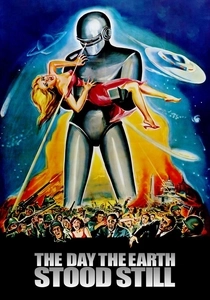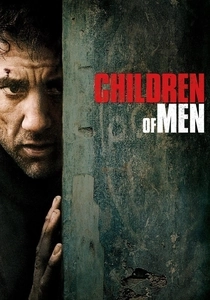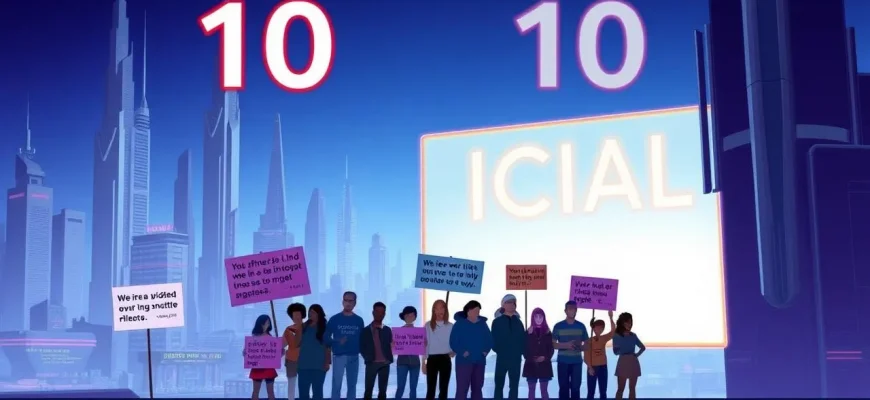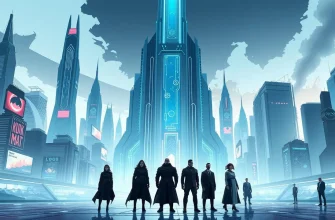Science fiction has always been a genre that not only entertains but also provokes thought and reflection on societal issues. These films delve into the complexities of social movements, offering a unique lens through which we can examine our own world. From dystopian futures to alternate realities, these movies challenge viewers to think about the power of collective action, the fight for justice, and the impact of technology on society. Here are 10 sci-fi films that brilliantly weave narratives around social movements, each offering a unique perspective on the human condition.

The Day the Earth Stood Still (1951)
Description: An alien visitor arrives on Earth with a message for humanity: unite or face destruction. This classic film addresses themes of peace, nuclear disarmament, and global unity, reflecting Cold War anxieties.
Fact: The film was remade in 2008 with Keanu Reeves, but the original remains a seminal work in sci-fi cinema.
 Watch Now
Watch Now 
A Clockwork Orange (1971)
Description: Stanley Kubrick's adaptation of Anthony Burgess's novel explores themes of free will, violence, and the ethics of behavioral modification, reflecting on societal control and individual rights.
Fact: The film was banned in several countries due to its graphic violence, and Kubrick himself withdrew it from UK cinemas after receiving death threats.
 Watch Now
Watch Now 
Brazil (1985)
Description: Terry Gilliam's dark comedy portrays a dystopian society where bureaucracy and technology control every aspect of life. It's a satirical look at consumerism, bureaucracy, and the individual's struggle against an oppressive system.
Fact: The film was initially released in a version edited by Universal Studios, leading to a public feud between Gilliam and the studio.
 Watch Now
Watch Now 
Gattaca (1997)
Description: In a future where genetic engineering determines one's social status, a man with inferior genes strives to achieve his dream of space travel. It's a story about discrimination, identity, and the fight for equality.
Fact: The film's title is derived from the letters representing the four nucleobases of DNA: guanine, adenine, thymine, and cytosine.
 Watch Now
Watch Now 
The Matrix (1999)
Description: While not explicitly about social movements, "The Matrix" delves into the concept of reality versus illusion, questioning the nature of control and freedom. It resonates with themes of rebellion against an oppressive system, paralleling many social movements.
Fact: The Wachowskis, the directors, were influenced by various philosophical and religious texts, including Plato's Allegory of the Cave.
 Watch Now
Watch Now 
Children of Men (2006)
Description: In a world where humans can no longer reproduce, a former activist must help transport a miraculously pregnant woman to safety. This film touches on themes of hope, immigration, and the human spirit's resilience against despair.
Fact: The film was shot in a documentary-like style to enhance its realism, and many scenes were filmed in real locations with minimal set dressing.
 Watch Now
Watch Now 
Equilibrium (2002)
Description: Set in a future where emotions are outlawed, "Equilibrium" follows a law enforcement officer who begins to question the regime after missing his dose of emotion-suppressing drugs. It's a film about the suppression of individuality and the fight for personal freedom.
Fact: The film was heavily influenced by George Orwell's "1984" and Aldous Huxley's "Brave New World."
 Watch Now
Watch Now 
V for Vendetta (2005)
Description: In a dystopian future Britain, a masked vigilante known as "V" uses terrorist tactics to fight against an oppressive totalitarian regime. This film explores themes of freedom, resistance, and the power of ideas, making it a poignant commentary on social movements.
Fact: The film was inspired by the graphic novel of the same name by Alan Moore and David Lloyd. The iconic Guy Fawkes mask has become a symbol of protest worldwide.
 Watch Now
Watch Now 
The Hunger Games (2012)
Description: In a dystopian future, the Capitol forces each of its twelve districts to send one boy and one girl to compete in the annual Hunger Games, a brutal fight to the death. It's a story of rebellion, survival, and the fight against an oppressive regime.
Fact: The film's setting was inspired by the reality TV phenomenon, reflecting on entertainment, control, and resistance.
 Watch Now
Watch Now 
Elysium (2013)
Description: In a future where the wealthy live on a luxurious space station while the rest of humanity suffers on a ruined Earth, one man's quest for justice becomes a catalyst for social change. It explores class division, healthcare, and immigration.
Fact: The film's title "Elysium" refers to the Greek afterlife paradise, symbolizing the stark contrast between the rich and the poor.
 Watch Now
Watch Now 








